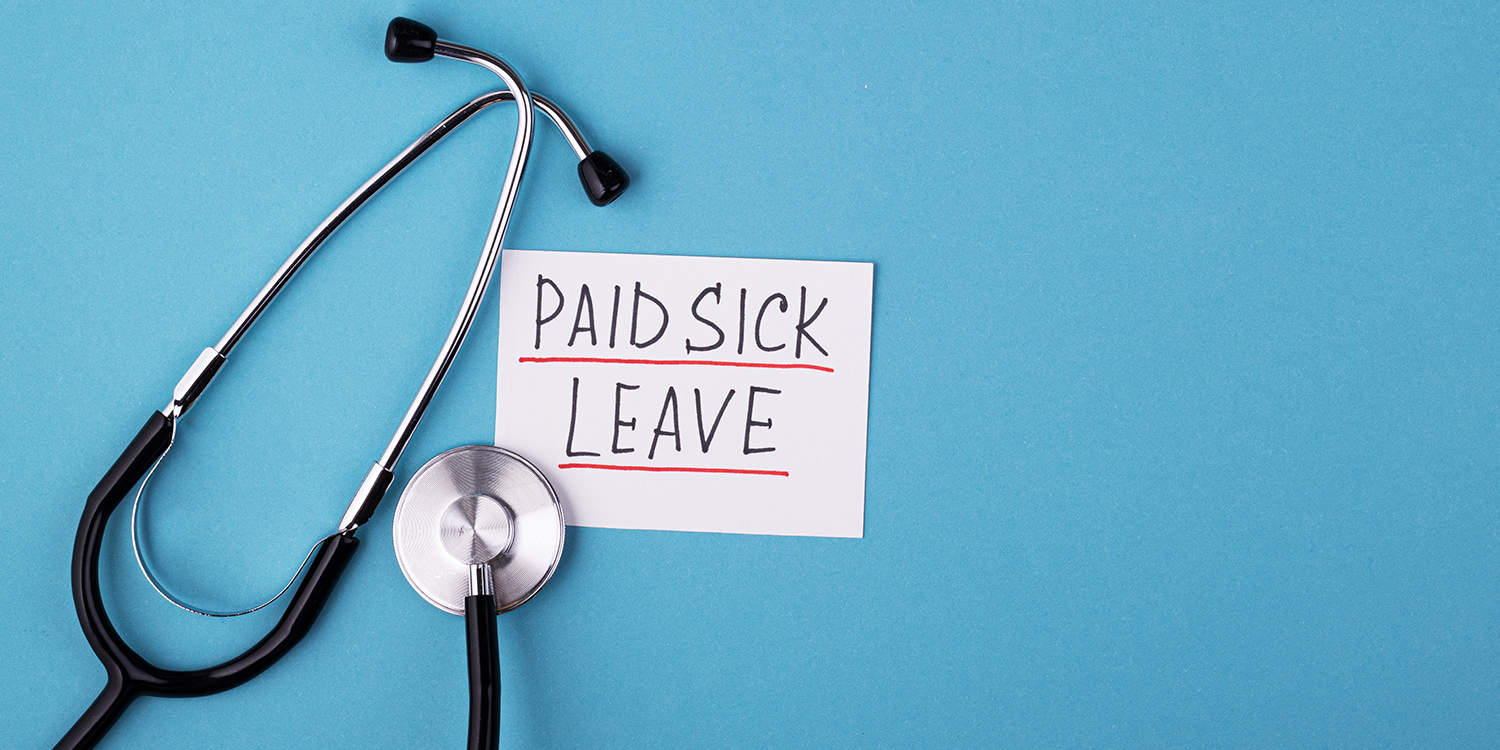If you are a UK employer, you have a legal obligation to provide Statutory Sick Pay (SSP) to all employees and certain groups or workers who meet the required eligibility criteria. Some people may be entitled to more than SSP, depending on their employment contract or your company’s sickness policy.
In this post, we discuss the minimum amount of sick pay that employers must provide to their staff, the eligibility criteria for SSP, and what happens if a person’s sick pay runs out.
Sick pay entitlement and eligibility
If an employee or worker is off sick from work, they may be entitled to Statutory Sick Pay (SSP) for up to 28 weeks. The current rate of SSP is £116.75 per week (2024/25), which is the minimum that you must pay as an employer.
However, many businesses provide more than this through their own sick pay scheme. This is usually referred to as occupational, contractual, or company sick pay. If you provide occupational sick pay, your employees may still be entitled to SSP as well.
Employees are eligible for SSP if they meet the following criteria:
- have an employment contract
- earn an average of at least £123 a week
- have carried out some work under their contract
- have been off sick for four or more consecutive days (including non-working days) – this is known as a ‘period of incapacity for work’
- notified you within the time limit you have set (or within seven days if you do not have one) and provided you with proof of illness when needed
Other groups of workers – including company directors, agency staff, casual and short-term workers, and those on zero-hours contracts – are also entitled to Statutory Sick Pay if they meet the eligibility criteria.
You can use GOV.UK’s SSP calculator to check the eligibility of an employee or worker.
When to start paying Statutory Sick Pay
Statutory Sick Pay must be paid when an eligible employee or worker is sick for at least four calendar days in a row (including non-working days). It is paid:
- for the days that the person normally works – called ‘qualifying days’
- in the same way as their wages – on their normal payday, deducting Income Tax and National Insurance contributions, where necessary
You do not pay an employee SSP for the first three working days that they are off sick (known as ‘waiting days’), unless:
- they received SSP within the last eight weeks, and
- that absence included three waiting days before they were paid SSP
If a person works for a minute or more before they go home due to sickness, you cannot count that day as a sick day.
If they work a shift that finishes the day after it started and they become sick either during their shift or after it has finished, the second day counts as a sick day.
Linked periods of sickness
If someone has regular periods of sickness, these will count as ‘linked’ periods if:
- each absence lasts four or more days
- they are eight weeks or less apart
However, an employee or worker becomes ineligible for SSP if they have a continuous series of linked periods lasting more than three years.
Requesting a fit note
If an employee is off sick, you can only ask them to provide you with a fit note (i.e. a sick note) if they are off work for more than seven consecutive days (including non-working days).
A fit note is an official statement from a registered healthcare professional that provides an assessment of the person’s fitness for work.
Fit notes can be issued in printed or digital format by:
- GPs and all other types of doctors
- nurses
- occupational therapists
- pharmacists
- physiotherapists
You cannot withhold Statutory Sick Pay if someone is late sending you a fit note.
It is important to remember that it may take time for someone to get one, because they may have difficulty getting out of bed, leaving the house, or getting an appointment with the relevant healthcare professional.
When a person is not eligible for SSP
Employees and workers do not qualify for Statutory Sick Pay if they:
- have already received the maximum amount of SSP (28 weeks)
- are receiving Statutory Maternity Pay or Maternity Allowance – there are special SSP rules for pregnant women and new mothers who do not receive these statutory maternity payments
- are off sick from work for a pregnancy-related illness in the four weeks prior to the week in which their baby is due
- were on strike or in custody on their first day of sickness (this includes any linked periods)
- are working outside the EU and you are not responsible for their National Insurance contributions
- received Employment and Support Allowance (ESA) within 12 weeks of starting or returning to work for you
If an employee or worker is not eligible for SSP, you must send them form SSP1 within seven days of going off sick from work.
If someone’s Statutory Sick Pay is coming to an end, you must send them form SSP1 either:
- within seven days of their SSP ending if it ends unexpectedly while they are still off sick
- on or before the beginning of the 23rd week of being off sick if their SSP is expected to end before they return to work
They may be able to apply for Universal Credit or ESA to help with living costs, using form SSP1 to support their application.
Employee sickness and annual leave
Employees continue to accrue statutory annual leave (holiday leave) while they are off sick from work, regardless of how long that is. They can also take annual leave during that time.
If you choose to approve their holiday request, their sick leave can be paused and they should receive holiday pay instead. However, you cannot force an employee to take annual leave when they are off sick.
If they become unwell when on holiday from work, they can get SSP for the time they are sick (if they notify you and are eligible) and keep their annual leave to use at a later date.
If employee sickness is caused by work
Surprisingly, the rules on sick pay are exactly the same even if a person’s sickness is caused by their work. This means that your employees and workers are not entitled to additional sick pay if they:
- sustain an injury through an accident or negligence in the workplace
- develop a mental health condition as a result of stress at work
However, the terms and conditions in some companies’ sickness policies or employment contracts may state otherwise, and provide different entitlements due to sickness caused by work.
Can my business claim back SSP from HMRC?
Previously, small employers were able to recover some of the Statutory Sick Pay they provided to their employees, but this is no longer the case. The temporary Coronavirus Statutory Sick Pay Rebate Scheme has now closed as well.
However, if you are insolvent, HMRC will pay SSP for any employees who continue to work for your business if they were sick when you became insolvent. They should get in touch with the Statutory Payment Disputes Team on 03000 560 630.
If their sickness continues and you terminate their employment, you must provide them with a completed SSP1 form so they can apply for Employment and Support Allowance instead.
Thanks for reading
As an employer, Statutory Sick Pay is the very minimum amount that you must provide to your employees and workers if they are off work due to an illness or injury.
However, you can pay more under your own occupational sick pay policy. This is a great benefit to offer, because it can ease your employees’ stress and fear of financial hardship, prevent sick people from forcing themselves into work and potentially making others ill, and improve your staff retention rate.
Upon their return to work after an absence, some employees may need additional support or adjustments. At other times, sickness may mean that an employee is unable to return to work. If you are facing any such complex situations, you can contact the Acas helpline for advice.
If you have any questions about this post or would like to speak to us about any of our company services, please comment below or get in touch with our team.












